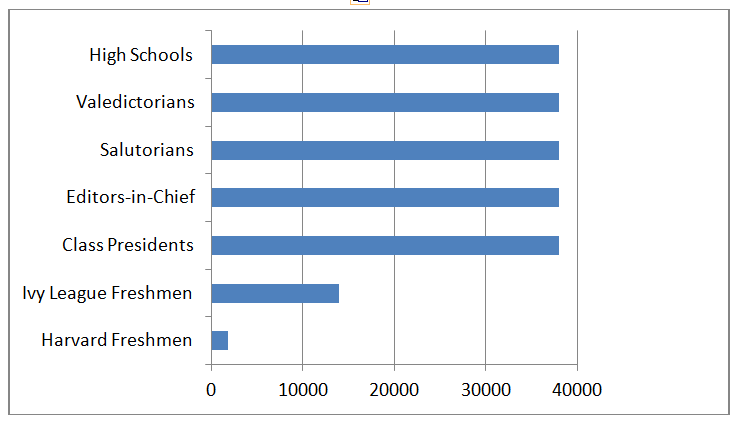Applying to the nation’s most elite colleges? Here’s what will set you apart

First of all, you’re self-selecting. That means that among the majority of students applying to competitive universities, you know you share with everyone else an amazing academic record, replete with AP, IB, and AICE courses, topped off with the highest SAT and ACT scores. 40,000 U.S. high schools with 40,000 valedictorians and 40,000 salutatorians, with probably another 300,000 students have the same academic dossier, a further 40,000 senior-class presidents and newspaper editors-in-chief ― that’s close to half a million top students, many of whom apply to the same top-tier universities. And only a small percentage of you are accepted.
What sets the accepted students apart from those who are denied? After all the superlative data are taken into account, and you’re into the next round of consideration, what’s left? Your voice. We’re don’t mean the sounds you utter, but something much more.
Exactly what kind of individual will emerge from your essays? How will you describe yourself, your extracurricular commitments, and any special talents? What kinds of anecdotes will your recommenders offer to highlight a vigorous intellectual curiosity? It’s this last item that I’d like to explain more fully to you, having just had the opportunity to hear this directly from admission officers at Yale and MIT during the NACAC (National Association for College Admission Counseling) conference last week in San Diego.
The recommendation letter that states something to the effect that Judi is the best student I’ve taught in my 35 years of teaching at Weequahic High School isn’t going to win you an acceptance. The colleges already know you’re a shining academic star. They want to peer well below the surface.…
Yale ― which accepted just 6.3% of more than 35,000 applications ― may admit you if your recommendation reflects:
- How you’ll grow and thrive at Yale
- What you’ll add to the Yale community
- Your
- adventurous spirit
- open-mindedness
- ability to be as good a follower as you are a leader
- community- and civic-mindedness
- joy of life and learning
- How you’re learning beyond getting the A
- How you’re thriving in all aspects of your life
- Why you chose the courses you took
- How “other-centered” you are, that you didn’t step on toes to get where you are
- How you’ll keep busy, academically and otherwise, on the Yale campus
- How you’ll be an actively engaged citizen within the Yale campus community
MIT ― with its whopping 7.9% acceptance rate out of 25,000+ applications ― is in agreement with Yale, and added that their admissions team looks for recommendations that also provide evidence of:
- Depth and breadth of understanding
- Collaborative spirit
- Love of problem-solving
- Resilience
So, how can you get dynamite recommendations like this? Spend some quality time with your recommenders to discuss your passions ― all the things that make you YOU! And it’s fine to send your recommenders a short bulleted list of those meaningful aspects of your life that best reflect the ideals for which selective colleges are searching. And make sure that your résumé is not just a bulleted list of activities, but a reflection of your depth and breadth of commitment ― with mention of the impact of your actions on others as well as on yourself.
Recommendations truly play a very important role in selective college admissions.
